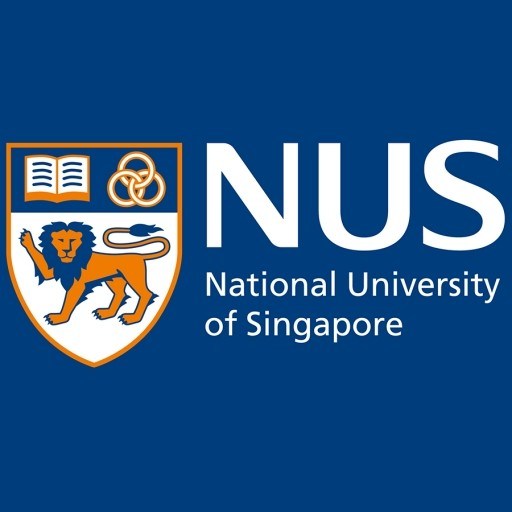Photos of university / #oxford_uni
The Bachelor of Arts in English Literature (1900-Present) at the University of Oxford offers an in-depth exploration of English literary history from the beginning of the 20th century to contemporary times. This comprehensive program is designed to provide students with a thorough understanding of major literary movements, influential authors, and critical perspectives that have shaped English literature over the past century. Through a combination of historical context, close textual analysis, and theoretical approaches, students will engage with a diverse array of texts, including novels, poetry, drama, and essays, reflecting the rich cultural and social transformations of the modern and postmodern eras. The curriculum emphasizes developing critical thinking, analytical skills, and literary criticism, equipping students with the ability to interpret complex texts and articulate their insights effectively. Coursework includes lectures, seminars, and independent research, encouraging intellectual independence and original thought. Students will also have opportunities to study linguistic developments, cultural debates, and interdisciplinary approaches relevant to the modern literary landscape. The program fosters a collaborative academic environment where students interact with leading scholars and participate in vibrant discussions. Graduates of this program are well-prepared for careers in education, publishing, media, arts administration, or further academic research. With its rigorous academic standards and emphasis on detailed textual analysis, the English Literature (1900-Present) program at Oxford aims to cultivate sophisticated readers and critical thinkers with a profound appreciation for the evolution of English literature in the modern age.
The MSt programme consists of four main components, through which you have the opportunity to pursue interests within your chosen MSt strand, as well as across period boundaries. In the first two terms, you will take a core course (A) tailored to your specific programme, a compulsory course in book history and theories of text (B) also tailored to your programme, and choose two courses from a wide range of options (C). Under the guidance of a specialist supervisor you will also research and write a dissertation, which is submitted in the final term.
The MSt programme is assessed via the submission of four pieces of coursework. In addition to the dissertation, you will submit three essays of 5,000 to 7,000 words – one at the end of the first term, and two at the end of the second term – relating to the B and C courses that have been taken.
All course work will be completed by the end of the second term (Hilary term), leaving the summer term (Trinity term) to complete the dissertation, which is submitted in June.
A. Core course: Literature, contexts and approaches
This is the core course for this MSt. It is formally non-assessed but compulsory. The general classes on literature, contexts and approaches introduce representative key texts and current debates on the literature and cultural history of the period. This course is designed to provide a solid foundation for advanced literary study.
B. Core course: Bibliography, theories of text, history of the book, manuscript studies
This is a compulsory, assessed course, taught via a range of lectures and seminars in each of the first two terms. It is designed to train you for research in English, through the study of bibliography, palaeography, book history and theories of text (appropriate to the relevant period).
C. Special options
The special option courses present an excellent opportunity for you to develop and pursue your research interests, whether related or unrelated to other work undertaken as part of the MSt degree. You are not constrained to follow option courses within the designated period, and indeed, option courses often traverse the boundaries of the broad periods. The courses are taught in weekly, small group seminars.
D. Dissertation
You will write a 10,000- to 11,000-word dissertation on a subject of your choice, but related to the work you have been doing over the year. You will be assigned to a member of academic staff who will act as your supervisor.
Applicants are normally expected to be predicted or have achieved a first-class or strong upper second-class undergraduate degree with honours (or equivalent international qualifications), as a minimum, in English literature and/or English language, or exceptionally a related subject.
For applicants with a degree from the USA, the minimum GPA sought is 3.75 (with at least 3.85 in the major) out of 4.0.
If you hold non-UK qualifications and wish to check how your qualifications match these requirements, you can contact the National Recognition Information Centre for the United Kingdom (UK NARIC).
No Graduate Record Examination (GRE) or GMAT scores are sought.
- Official transcript(s)
- CV/résumé
- Statement of purpose/personal statement:One to two pages
- Written work:Either one essay of 4,000 words or two essays of 2,000 words each
- References/letters of recommendation:Three overall, generally academic
ENGLISH LANGUAGE REQUIREMENTS
Higher level
|
Test |
Standard level scores |
Higher level scores |
||
|
IELTS Academic |
7.0 | Minimum 6.5 per component | 7.5 | Minimum 7.0 per component |
|
TOEFL iBT |
100 |
Minimum component scores:
|
110 |
Minimum component scores:
|
| Cambridge Certificate of Proficiency in English (CPE) | 185 |
Minimum 176 per component |
191 |
Minimum 185 per component |
| Cambridge Certificate of Advanced English (CAE) | 185 |
Minimum 176 per component |
191 |
Minimum 185 per component |
Want to improve your English level for admission?
Prepare for the program requirements with English Online by the British Council.
- ✔️ Flexible study schedule
- ✔️ Experienced teachers
- ✔️ Certificate upon completion
📘 Recommended for students with an IELTS level of 6.0 or below.
- Global Education
- Hill Foundation Scholarships
- Ertegun Scholarship Programme











